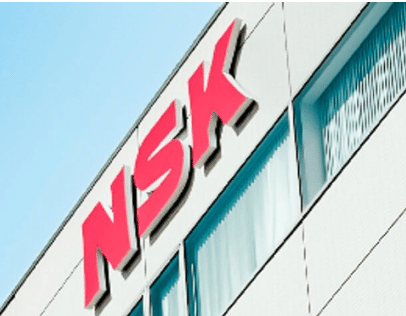
Introduction:
The maritime industry is a diverse and critical sector that relies on precision and reliability for the safe and efficient operation of vessels, offshore platforms, and maritime infrastructure. Bearings are fundamental components in marine machinery and equipment, ensuring performance and durability in the harsh marine environment. NSK and SKF, two prominent bearing manufacturers, have earned a strong presence in the maritime industry. In this comprehensive comparison, we will explore NSK bearings and SKF bearings for marine applications, highlighting their unique features, performance, and significance in the sector.
Challenges in Marine Applications:
The maritime industry presents unique challenges, including:
Corrosion Resistance: The marine environment is corrosive due to saltwater exposure, demanding bearings with excellent corrosion resistance.
High Load-Bearing Capacity: Marine equipment must handle heavy loads, from ship propulsion systems to offshore crane machinery.
Water and Contaminant Protection: Seals and shields are essential to protect bearings from water, sand, and other contaminants prevalent in marine applications.
Longevity and Reliability: Downtime for maintenance at sea can be costly and challenging. Bearings must have a long service life to minimize interruptions.
NSK Bearings for Marine Applications:
NSK is known for delivering high-performance bearings suitable for marine applications. Key features and advantages include:
Advanced Corrosion Resistance: NSK employs advanced materials and coatings to enhance bearing durability, making them highly resistant to corrosion from saltwater exposure.
High Load Capacity: NSK bearings are designed to handle heavy loads encountered in marine applications, ensuring stability and safety.
Effective Sealing: NSK provides effective sealing and shielding options to protect bearings from water and contaminants, extending their lifespan.
Longevity: NSK bearings are engineered for reliability and durability, reducing downtime and maintenance costs for marine operators.
Customization: NSK offers customization options to tailor bearings for specific marine applications, ensuring optimal performance.
SKF Bearings for Marine Applications:
SKF is also a significant player in the maritime industry, offering bearings designed for optimal performance in marine applications. Key features and advantages include:
Advanced Corrosion Resistance: SKF utilizes high-quality materials and coatings to enhance bearing durability and resistance to corrosion from saltwater exposure.
High Load Capacity: SKF bearings are engineered to handle heavy loads, providing stability and safety in marine applications.
Effective Sealing: SKF offers sealing and shielding solutions to protect bearings from water and contaminants, extending their lifespan in harsh marine conditions.
Longevity: SKF bearings are designed for reliability and durability, reducing maintenance costs and downtime for marine operators.
Customization: SKF provides customization options to ensure that bearings meet the specific requirements of different marine applications, delivering optimal performance.
Conclusion:
In the maritime industry, where corrosion resistance, high load capacity, longevity, and reliability are paramount, both NSK and SKF have established themselves as trusted providers of high-performance bearings.
The choice between NSK and SKF bearings for marine applications should consider specific requirements such as corrosion resistance, load capacity, protection from water and contaminants, longevity, and customization needs. By carefully evaluating these factors, marine professionals can make informed decisions that enhance the efficiency, reliability, and cost-effectiveness of maritime operations, ensuring the safety and sustainability of marine equipment and vessels.
